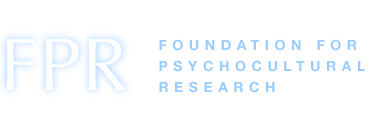FPR Board Meeting
May 25, 2017
Marion Davies Children’s Center, CHS
UCLA
May 25, 2017
Marion Davies Children’s Center, CHS
UCLA
The FPR board meeting was held on Thursday, May 25, 2017, to discuss ideas generated at the February 2017 “brainstorming” workshop and future directions/programs.
To briefly recap, the consensus at the FPR Brainstorming Workshop in February 2017 was that supporting workshops would be part of an ongoing process of building a sustainable network among institutions that can help integrate specialized research agendas in the neurosciences and the social sciences. The FPR’s mission remains the same – how environmental context, especially society and culture, shape brain-mind-body-behavioral processes and overall mental wellbeing or illness, and vice versa. But the workshops/network model could provide more concrete opportunities for scholarly exchanges, methods and data sharing, and critical and creative reflection on tacit assumptions and domain-specific constructs that may have different interpretations for different researchers.
Discussion at Thursday’s board meeting mainly focused on the concept of a global network, and its possible components or modes of engagement (Fig. 1).
In addition to supporting research on culture-mind-brain interactions , the idea is (1) to strengthen ties between junior and senior scholars/researchers focusing on culture, mind, brain interactions; (2) to contribute multiple pathways toward career development (this would include cultivating relationships with journal editors interested in publishing integrative research (MKS); and (3) to explore ways to apply this knowledge to “real-world” clinical settings (MKS).
The network model will involve multiple granting mechanisms and multiple developmental stages for the different components , e.g., extending grants or dissertation support to young scholars/researchers. It is being described as a “global” effort given the number of institutions, programs, centers, and individuals committed to understanding brain and mind in context (Fig. 2).
In terms of next steps, we resolved to (1) assess the “doability” of each of the components; (2) prioritize that list; and (3) determine what we can afford and leverage. The group agreed that it would be best to roll out elements of the network in stages.
Next steps also inlcude contacting various “stakeholders” and getting their feedback, e.g., Laurence Kirmayer, Carol Worthman, and Shinobu Kitayama (our Culture, Mind, Brain volume co-editors who were also involved in early discussions with CC about the possibility of this initiative) and writing a job description for a network administrator, preferable a recent PhD with research experience in more than one discipline.
FPR-Hampshire College Culture, Brain, and Development Program
Culture, Mind, and Brain: Emerging Concepts, Models, Applications (Cambridge University Press, 2020)
